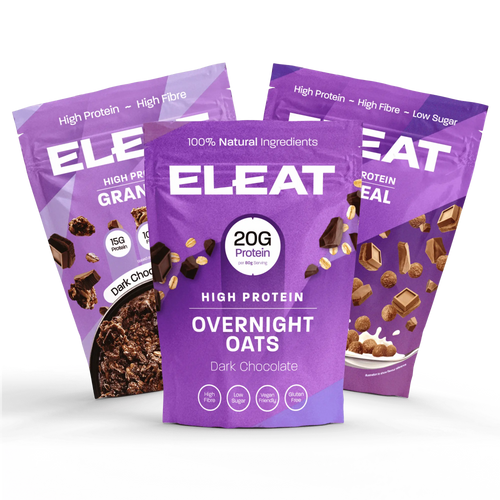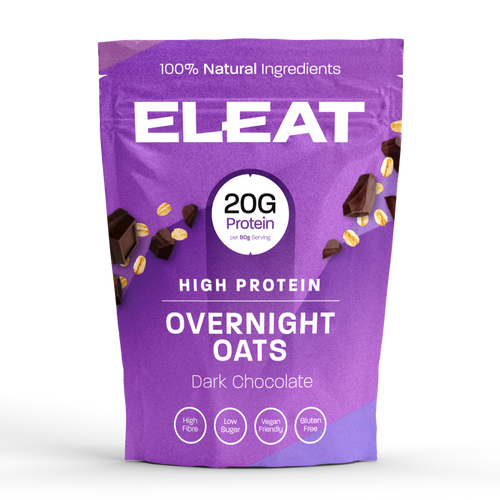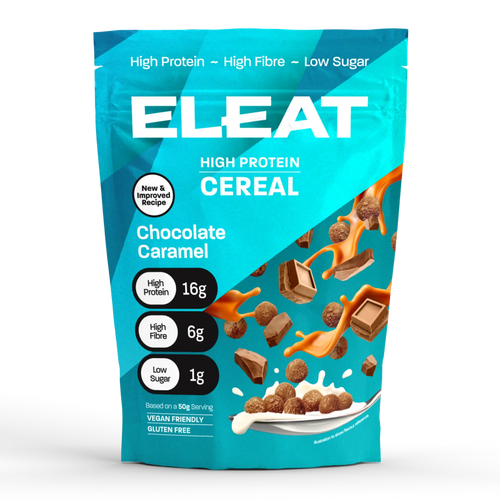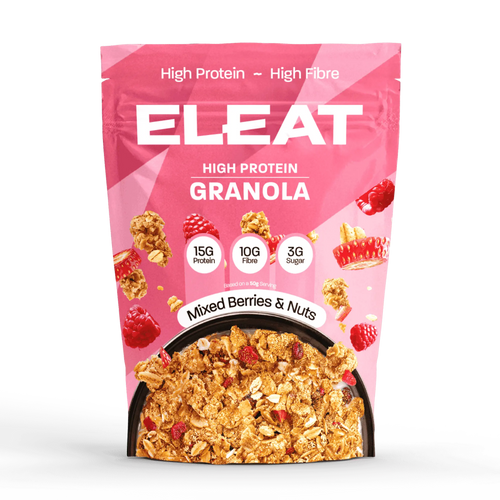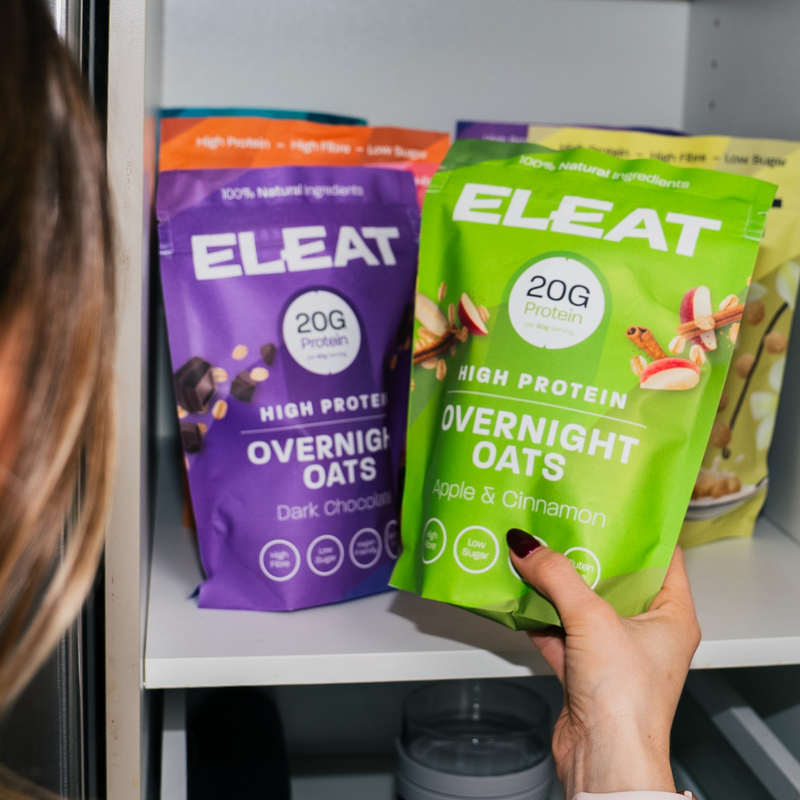In this article:
We would be biased in this opinion, but breakfast is the most important meal of the day. Yet, most people skip it. Why? It may be due to inconvenience or even feeling like you’re not getting a nutritious meal out of it but we’re looking to change this; you should be looking at how to increase the protein in your breakfast.
Increasing the protein in your breakfast is a great place to start when improving your mornings. Did you know that starting your day with a high-protein breakfast can boost your metabolism by up to 30% and keep you full longer? Protein isn’t just for bodybuilders; it’s a crucial macronutrient that everyone needs for optimal health.
We’re re-setting the tone for breakfast being the most important meal of the day. A protein-rich breakfast can lay the way for a productive and energetic day. It’s essential to kick-start your day with adequate protein to fuel your body and mind.
Let’s explore the benefits of a high-protein breakfast, look into various high-protein foods, offer tips for incorporating more protein into your morning routine, and help you love breakfast again!
Benefits of a High-Protein Breakfast
As we’ve already mentioned, a high-protein breakfast is a great place to start to improve your morning routines. But, there are so many benefits for all of us that go beyond building and repairing our muscles.
Muscle Maintenance and Growth
Whilst this is by no means the only benefit of consuming a high-protein breakfast, it’s definitely still an important one. After a night of fasting, your body needs protein to repair and build muscle tissues. Consuming protein in the morning helps kick-start this process, essential for anyone active or looking to build muscle.
Sustained Energy Levels
Protein helps maintain stable blood sugar levels throughout the day, so, when consumed at breakfast it will provide you with a steady source of energy throughout your morning. Unlike carbohydrates, which can cause spikes and crashes in blood sugar, protein is digested much more slowly allowing for a more consistent energy supply.
Satiety
Many of us experience the mid-morning hunger pang, but consuming protein in your breakfasts will help you feel satiated for longer. Protein takes longer to digest compared to carbohydrates and it also stimulates hormones that signal fullness, reducing mid-morning cravings and helping you feel full for longer.
Improved Focus
Consuming protein-rich foods for breakfast can significantly improve mental focus and productivity by stabilising blood sugar levels and supporting the production of essential neurotransmitters.
Proteins are made up of amino acids, which are all crucial for the synthesis of neurotransmitters like dopamine, norepinephrine, and serotonin, all of which play key roles in regulating mood, alertness and concentration. A steady supply of neurotransmitters ensures that brain functions are optimised, enhancing cognitive abilities and mental clarity.
The consistent blood sugar levels that come from consuming protein at breakfast also help maintain consistent energy levels, reducing feelings of fatigue and brain fog that can hinder mental performance.
Tips for Incorporating More Protein in Your Breakfast
If you are a regular breakfast eater and you’re not looking to change what you’re eating, that’s totally fine! But, we’ve put together some suggestions on how you can add a bit of extra protein to your morning routines. It's important to note, we all need different amounts of protein in our diet, but it's generally positive to increase this.
Add Nut Butters
The addition of nut butter is a great way to incorporate some extra protein into your mornings, whether it’s peanut, almond or cashew butter!
You can have them on a slice of toast if you’re looking for a quick breakfast as you’re running out the door, or add them to your yoghurt, overnight oats, or smoothies for an extra protein boost.
Choose High-Protein Grains
Oats are a traditional breakfast staple; porridge, muesli, overnight oats - the list goes on! But, there are higher-protein alternatives that you can use instead that will help increase the protein in your breakfast. Opt for grains like quinoa or chia seeds and make a nutritious chia pudding to increase your protein intake.
Swap to a High-Protein Breakfast Cereal
Cereal is a staple breakfast for many of us, it’s quick and convenient - and satisfying at the time. However, the cereals we’ve all grown up on are so bad for us, packed full of sugar with 0 nutritional value.
Swap out your regular cereal for a high-protein alternative, like ELEAT. ELEAT contains 15-17g of protein and only 1g of sugar, it’s been designed to help you start your mornings the right way - containing absolutely no nasties.
Other High-Protein Breakfast Food Additions
There are so many other staple foods that are great for breakfast too. For example, eggs are a classic. We all associate eggs with breakfast, and although they take a little more time to prepare they’re versatile and packed with protein and other essential nutrients.
Incorporating high-protein dairy products into your diet can also be another really easy solution to upping your protein intake. Cottage cheese is a versatile ingredient that is often ignored, it is delicious paired with fruits, and nuts or even used as a spread on toast, and it contains around 11% protein. Swapping in Greek yoghurt instead of regular yoghurt is a really simple way to drive your protein intake, comparatively, it contains nearly double the protein content.
Common Mistakes to Avoid
You’d think that optimising your breakfast would be easy, but beyond increasing the protein in your breakfast there are many common mistakes we all make that hurt our overall health.
Skipping Breakfast
This is an obvious one considering we’ve mentioned how important breakfast is as a meal. After an overnight fast, your body needs nutrients to recover and set itself up correctly for the day. It also means that you’re more likely to overeat later in the day.
Relying Solely on Carbohydrates
Traditionally many of us turn to a carb-heavy breakfast, they’re often the easiest and seemingly most delicious - croissants, toast and traditional breakfast cereals. But, these often lead to crashes in your energy levels and reduced productivity. Balance your morning meal with protein to keep your energy levels stable.
Overlooking Portion Sizes
When you’re trying to hit your protein goals, this doesn't just mean increasing your portion sizes until you reach your desired amount. Ensure you’re consuming enough protein without overeating, portion control is the key to a balanced diet.
Ignoring Food Labels
Just because a food product has a single positive callout on the packaging, it doesn’t mean it’s a fully healthy product. You should always be mindful of hidden sugars and unhealthy fats in packaged goods that seem healthy. Traditional cereal is a great example of this, it’s full of nasty ingredients and sugar but often slips under the rug. Always read the label to make informed choices.
Conclusion
Breakfast often gets skipped due to time constraints or a lack of nutritious options, but there are so many simple ways to improve the quality of your breakfast whilst keeping it convenient. Increasing the protein in your breakfast can transform your mornings and set the stage for a productive, energetic day.
Whether you’re adding peanut butter, or new grains to your breakfasts or changing them up totally with eggs or high-protein cereals, like ELEAT, making these alterations will help you maintain your energy levels and focus, as well as improving your overall wellbeing.
Challenge yourself to try a new high-protein breakfast recipe or tip this week. Your body and mind will thank you!
